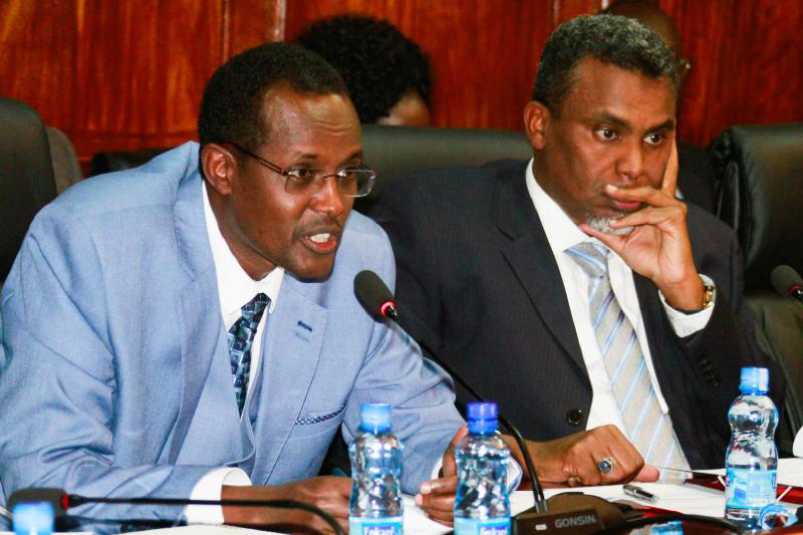
EACC CEO Halakhe Waqo(L) and Director of Public Prosecution Noordin Haji when they appeared before the National Assembly Justice and Legal Affairs Committee on the wide spread of corruption in the country at Parliament on Thursday 21/06/18. [Boniface Okendo,Standard]
The Kenyan Nation has been diagnosed with severe and malignant bouts of triibalism, marginalization, corruption and divisive politics. The four elements had long been illuminated by the Nigerian Novelist Chinua Achebe for anyone who cares. Achebe’s four novels Things Fall Apart, Arrow of God, No Longer At Ease and A man of The People together represent the making of modern Kenya.







